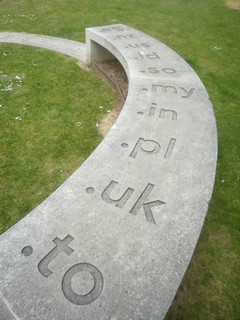 When you start your business, it?s obvious that one of the first things to do is pick a name. While CorpNet provides a way to search for your name to ensure you can get the trademark, another very important naming step is obtaining an Internet domain name. One problem is that many names, terms, and even combinations of terms are already taken in the .Com top-level domain.
When you start your business, it?s obvious that one of the first things to do is pick a name. While CorpNet provides a way to search for your name to ensure you can get the trademark, another very important naming step is obtaining an Internet domain name. One problem is that many names, terms, and even combinations of terms are already taken in the .Com top-level domain.
Searching on your favorite registrar may end up an exercise in frustration as you get suggestions for variations on your business name that make no sense. Do you really want your marketing to list?Joes-Flower-Shop.com instead of JoesFlowerShop.com? (Hey, that domain name, incredibly, is available as of this writing. Go start your dream flower shop, Joe!)
Never fear, the folks that effectively run the Internet, known as the Internet Corporation for Assigned Names and Numbers (ICANN) have announced that over 1000 new top-level domain names will be coming into service in the near future, possibly as soon as mid-next year. Instead of the aforementioned JoesFlowerShop.com, you might be able to get JoesFlower.Shop, or JoesFlower.Store.
The top level domains like .com and .net will be joined by .store, .baby, .hotel and potentially hundreds of other choices. This wealth of riches also holds the possibility for some very large problems. One gotcha that almost no one thinks about: when you register a domain, you are registering it in the jurisdiction of a particular country. A .Com domain is subject to the legal jurisdiction of the United States, as Bodog.com found out when it lost its domain after breaking online gambling laws in the US.?
You probably weren?t planning to run an illegal site, but that doesn?t mean you should ignore where you register your domain. Someone utilizing .CO or .LY as their top level domain should understand that the registries are based out of the countries of Columbia and Libya, respectively. You?ll often see shortened URLs from Bit.ly and clever web companies with words that end in ?ly.? But in October 2010, URL shortener vb.ly (intended as the Internet?s first ?sex positive? url shortener) was removed by the registrar since the service was contrary to the country?s religious laws, which are reflected in the terms and conditions when a company signs up for a ?.ly? domain name.
Again, you probably weren?t planning to run a website contrary to the religious or moral beliefs of a country. How about the privacy laws of a country? When some of these new gTLDs (generic top level domains) come online, they?ll be based in the European Union, which has different laws about data privacy and data collection than we do in the US. Will you be subject to those terms and conditions if you choose that domain? We don?t yet know, since many of those domains aren?t available for use yet.
The main point of this article isn?t to scare you about registering a unique name for your business as a domain name online. It is just a reminder to be educated, to look at the terms and conditions on an internet license before you click ?accept? and to do some research to make sure that your business name can be trademarked, and can be obtained as a domain name. So many potential customers use the net to look for businesses by name ? make sure your name is available before you make that final decision.
Photo: QuerkMachine via Flickr
Ryder Cup Standings Dexter Season 7 Ryder Cup 2012 Johnny Lewis Honey Boo Boo yom kippur yom kippur
No comments:
Post a Comment
Note: Only a member of this blog may post a comment.